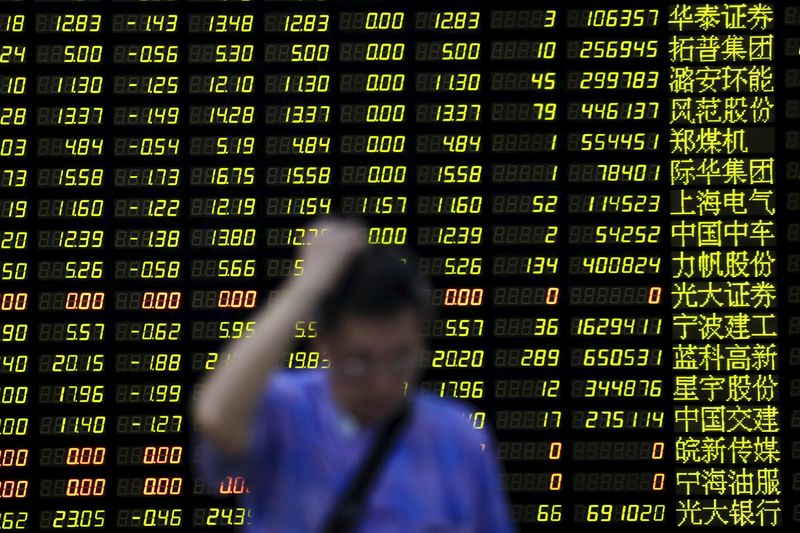Investing.com--Most Asian stocks fell on Monday, with Chinese markets leading losses on the prospect of a trade war with the European Union, while anticipation of key U.S. inflation data also kept sentiment on edge.
Regional markets took middling cues from Wall Street, as a mix of profit-taking and rate fears saw U.S. stock indexes slip from record highs on Friday. U.S. stock index futures were muted in Asian trade.
Stronger-than-expected purchasing managers index data from the U.S. pushed up concerns that resilience in the U.S. economy will keep interest rates high for longer.
Chinese stocks down on EU trade war fears
China’s Shanghai Shenzhen CSI 300 and Shanghai Composite indexes fell 0.4% and 0.8%, respectively, while losses in mainland stocks dragged Hong Kong’s Hang Seng index down 1%.
Chinese markets were nursing extended losses after the European Union had earlier in June imposed steep tariffs on imports of Chinese electric vehicles. The move drew ire from Beijing and ramped up the possibility of a trade war.
Chinese officials warned of a potential trade war with the EU, as ministers from China and Germany met to negotiate a path forward. Beijing was also seen considering retaliatory tariffs against imports of European automobiles.
Chinese stocks were nursing steep losses over the past two weeks, with sentiment towards the country and broader Asia remaining negative. Losses in Hong Kong were also driven by declines in heavyweight technology stocks.
Weak industrial production data from the country had also dented sentiment last week.
Other China-exposed markets retreated. Australia’s ASX 200 fell 0.6%, while South Korea’s KOSPI shed 0.9%.
Japanese stocks rise, yen intervention eyed
Japanese stocks were mild outliers on Monday, with the Nikkei 225 and TOPIX indexes rising 0.3% each.
Local stocks were somewhat encouraged by weakness in the yen, which was close to its weakest level against the dollar in over 30 years.
But weakness in the yen saw investors largely on guard over any potential currency market intervention by Tokyo, especially as key Japanese finance ministers warned of such a scenario.
Broader Asian markets moved in a flat-to-low range, with focus on key U.S. inflation data this week for more cues on interest rates. PCE price index data, which is the Federal Reserve's preferred inflation gauge, is due this Friday.
Futures for India’s Nifty 50 index pointed to a weak open, after the index was dealt with a heavy degree of profit-taking after making record highs earlier in June.
